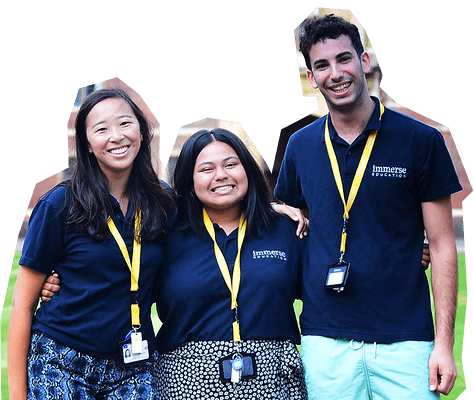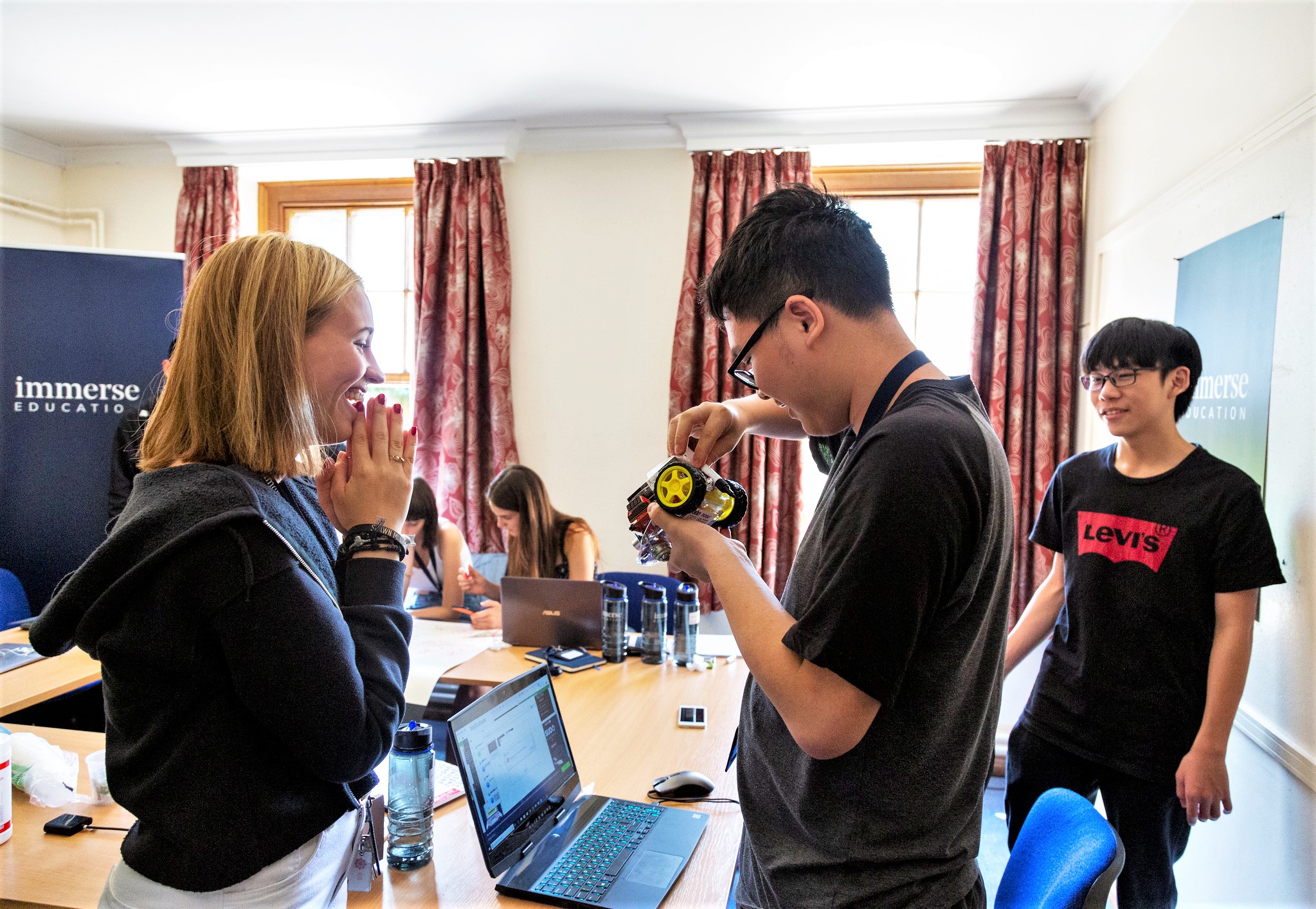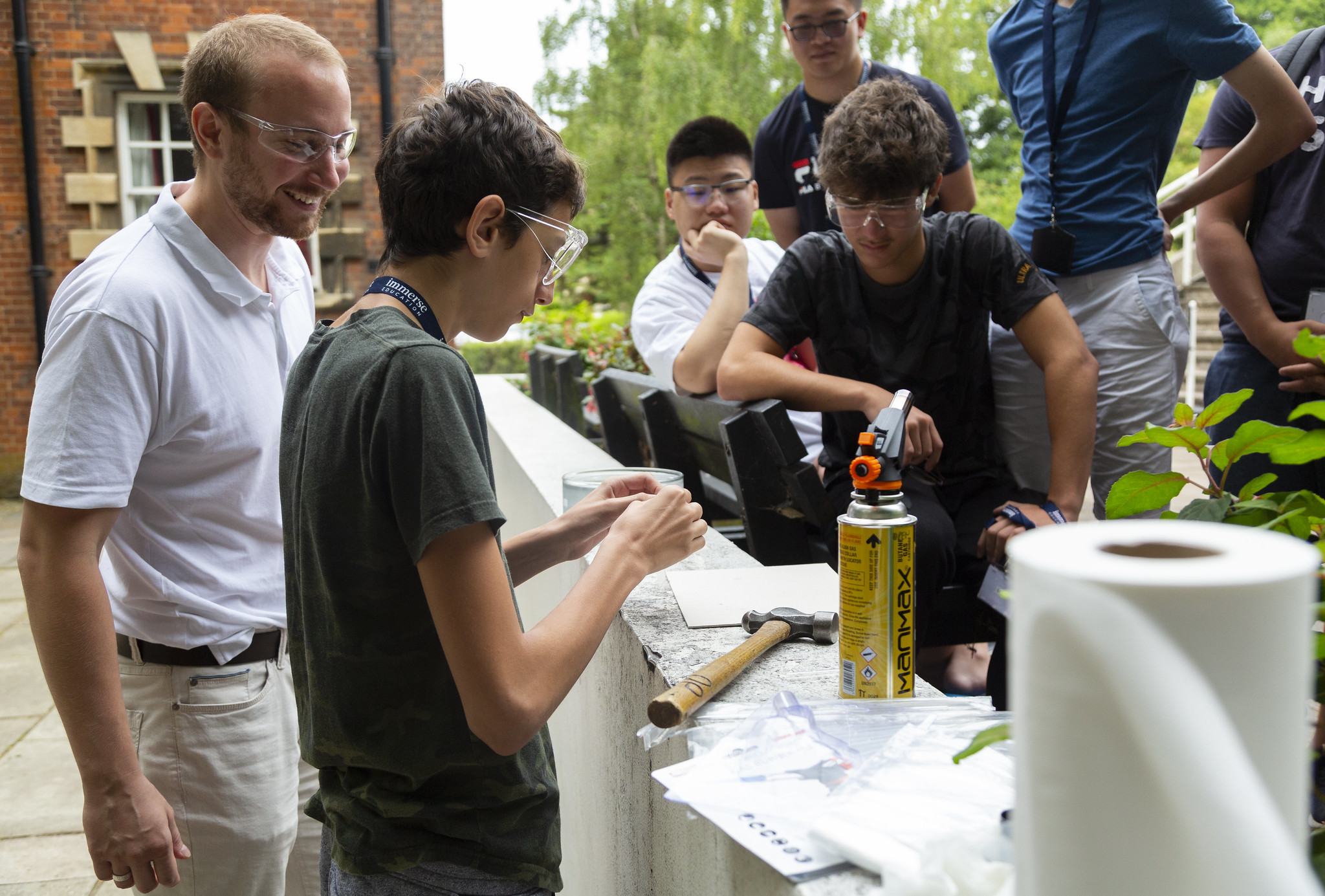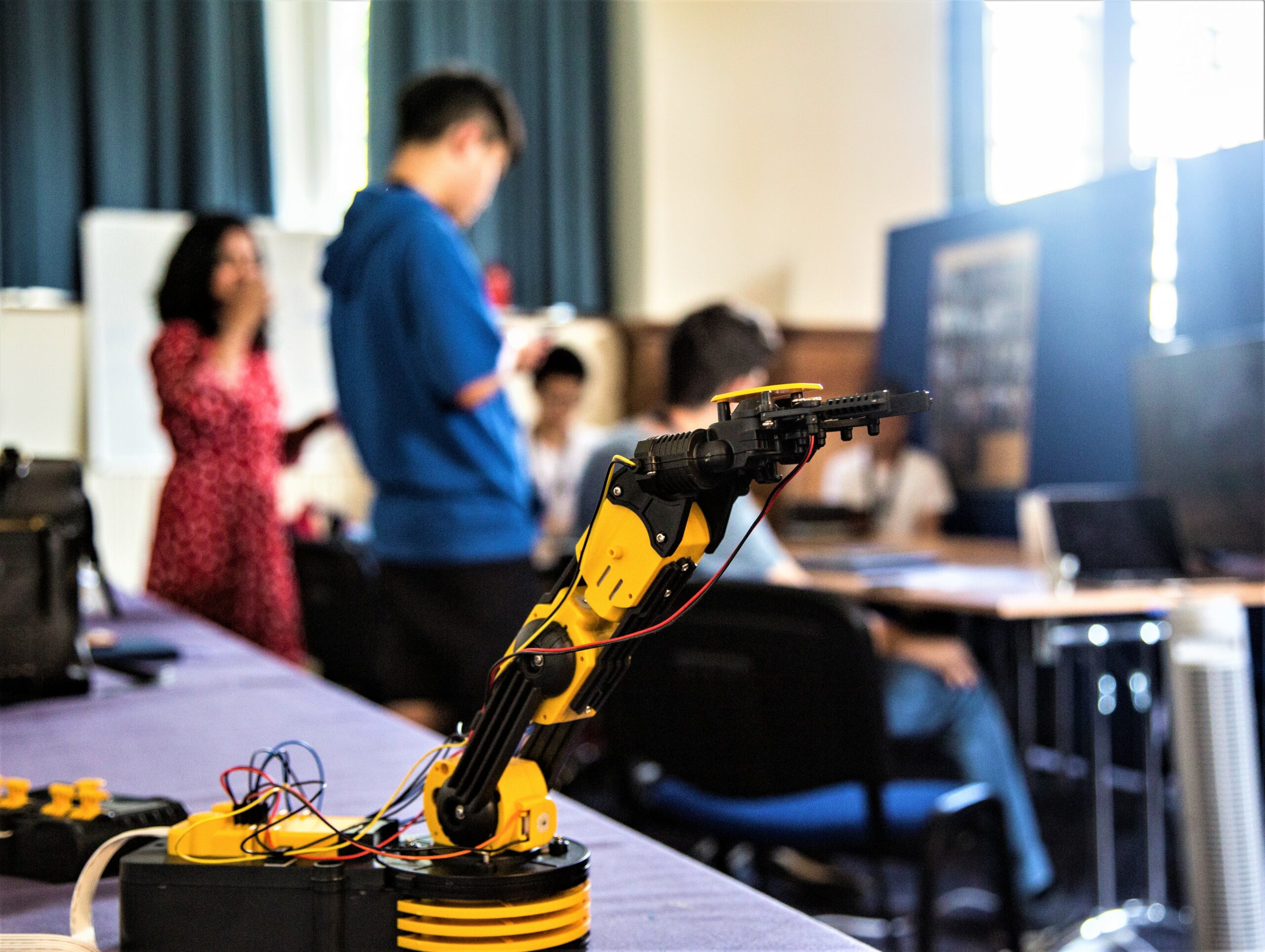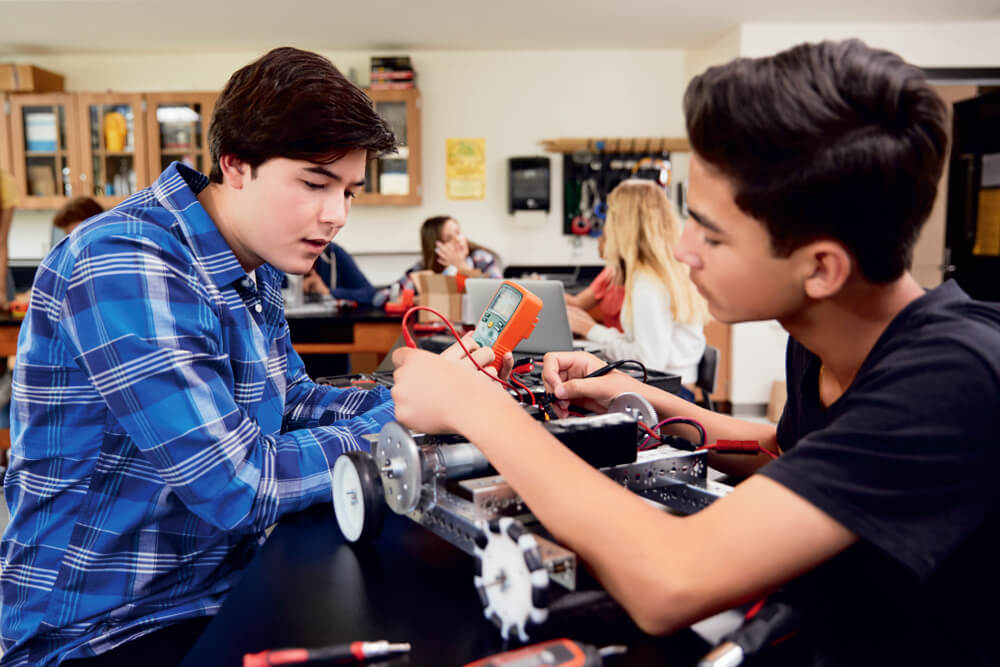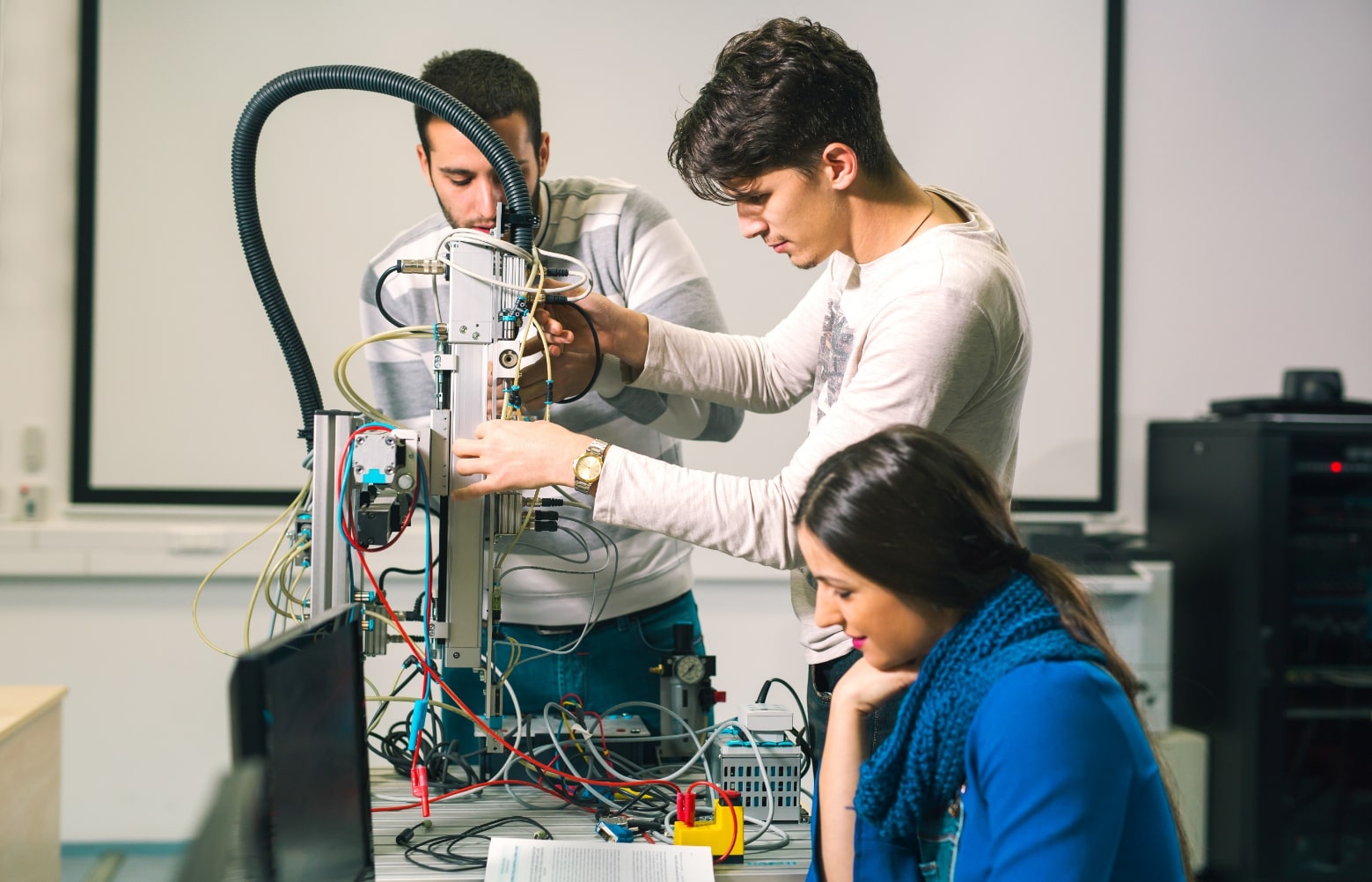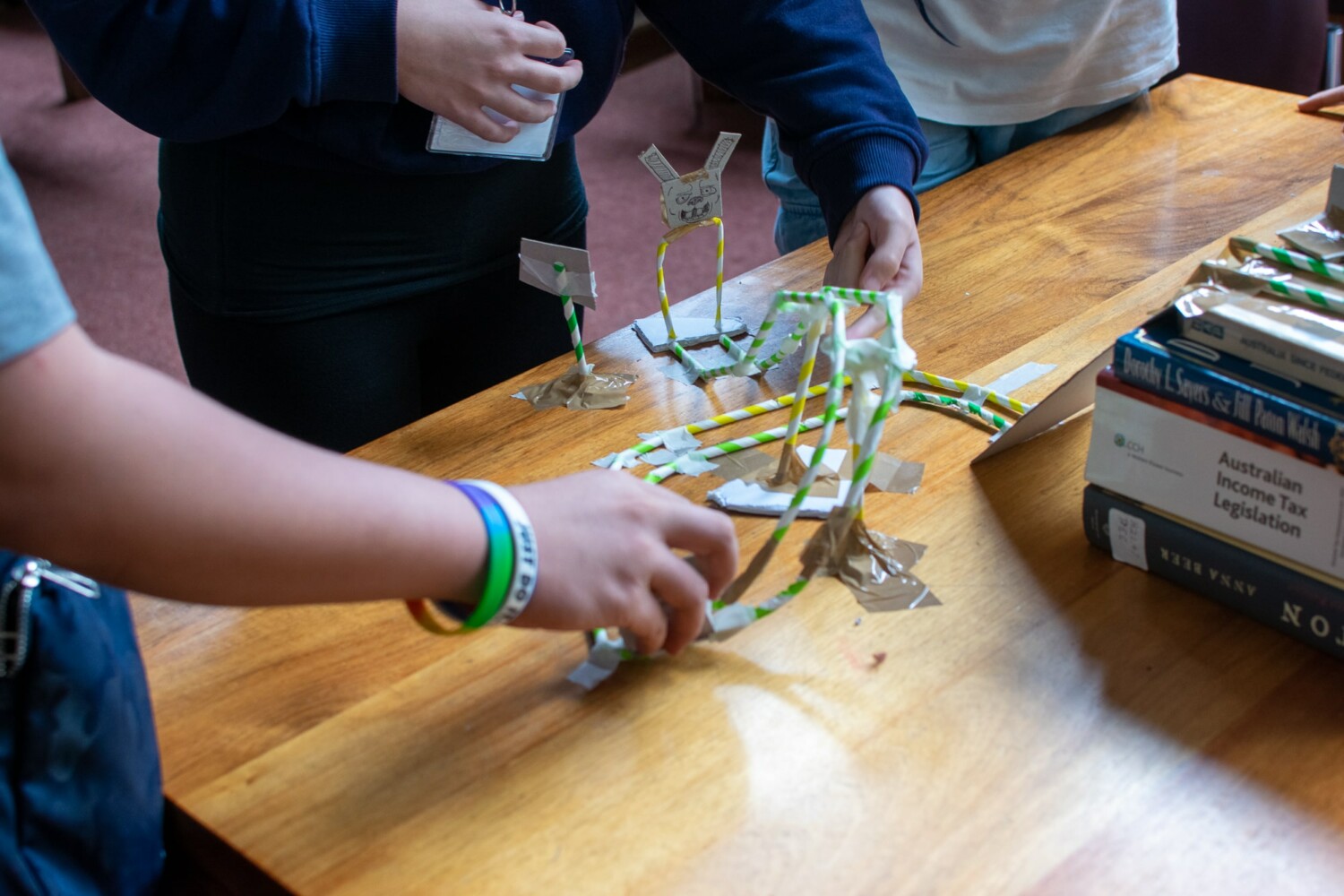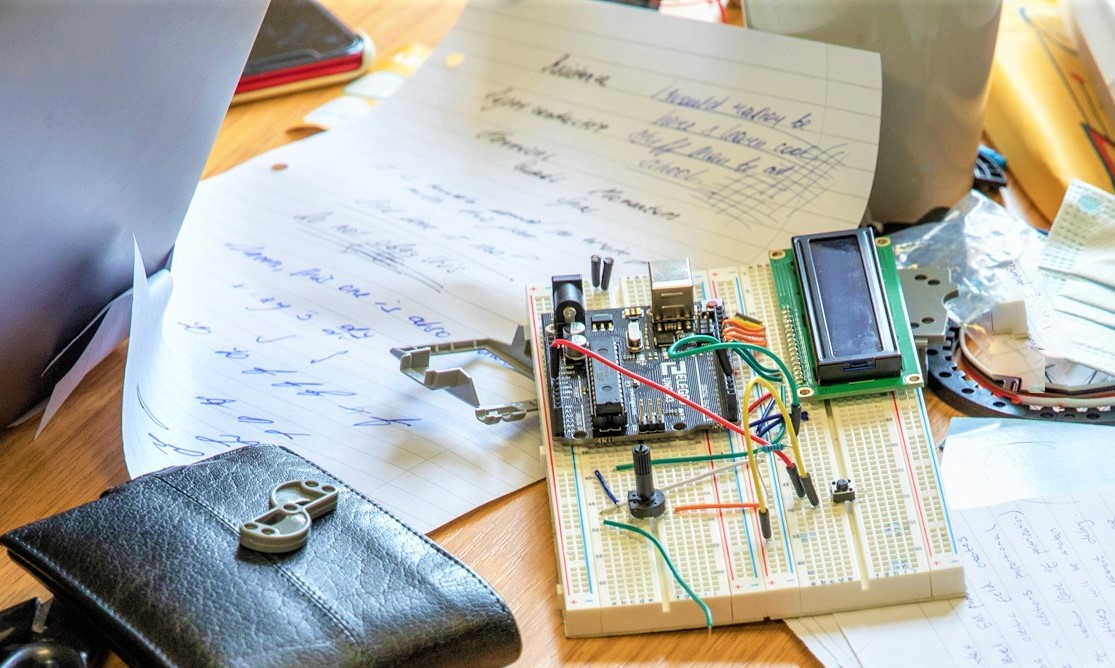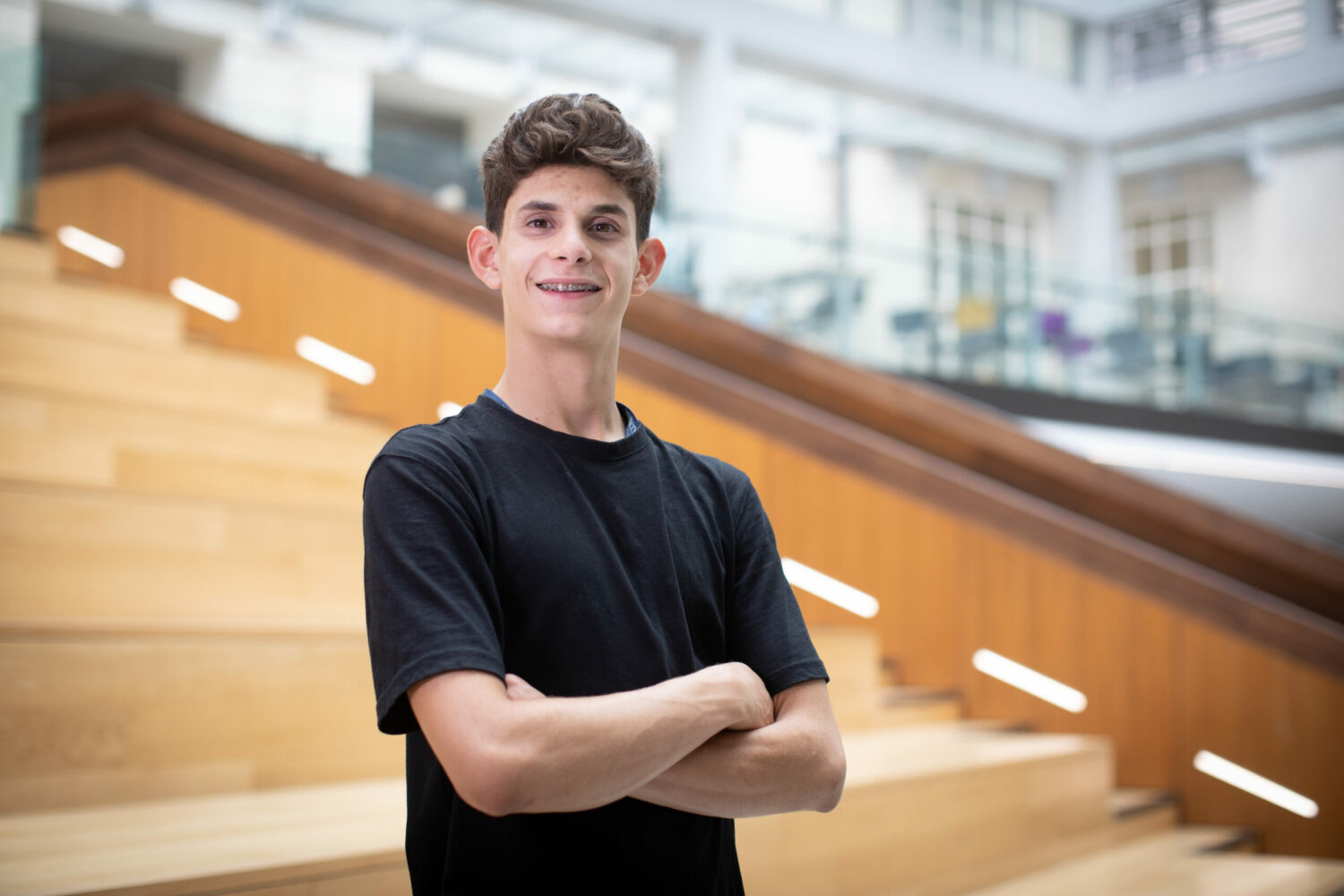Summer Engineering Programmes For High School Students
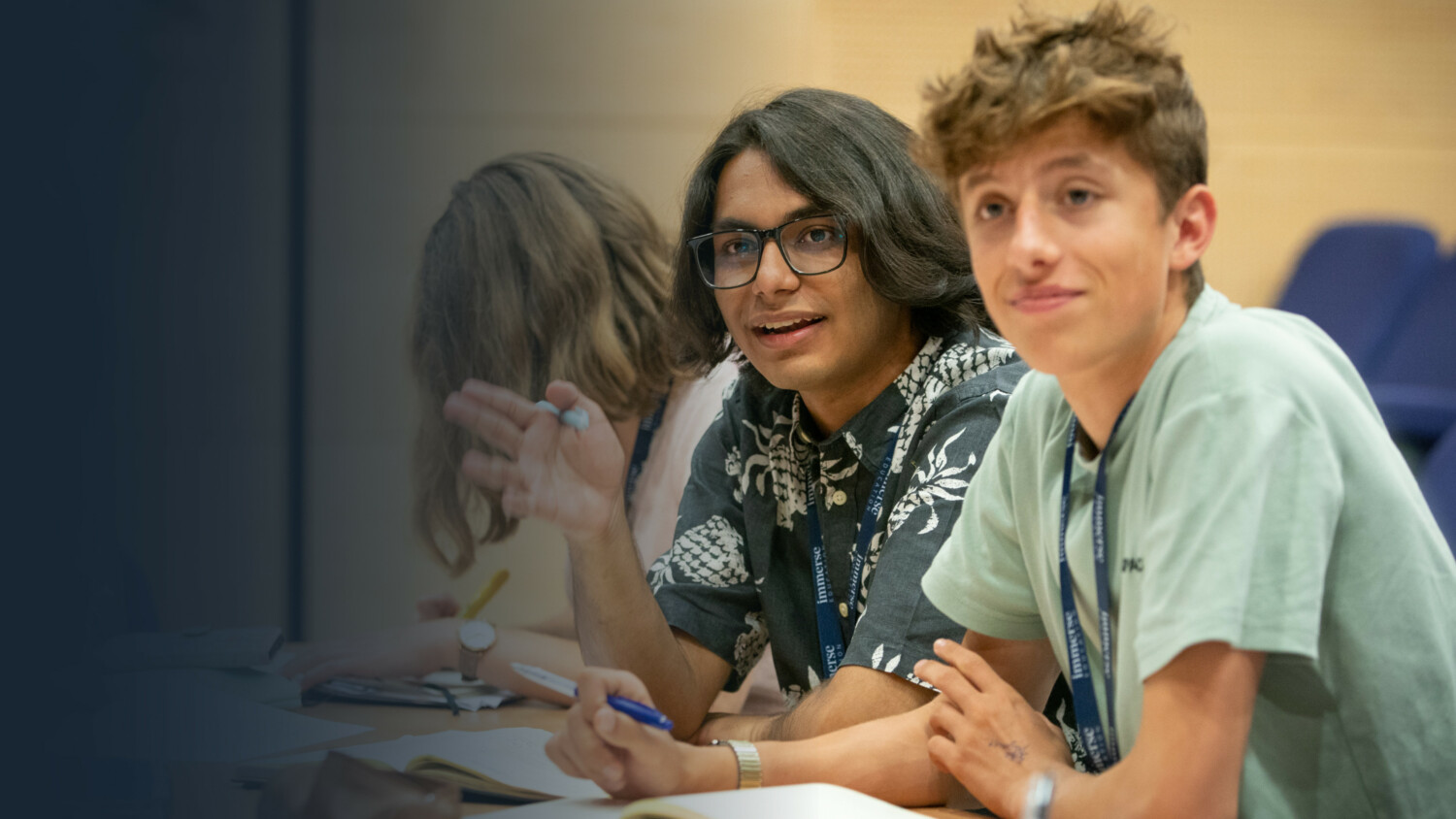
Unparalleled academic programmes
Engineering
Engineering
Engineering
Engineering
Engineering
Engineering
Engineering
Engineering
Engineering
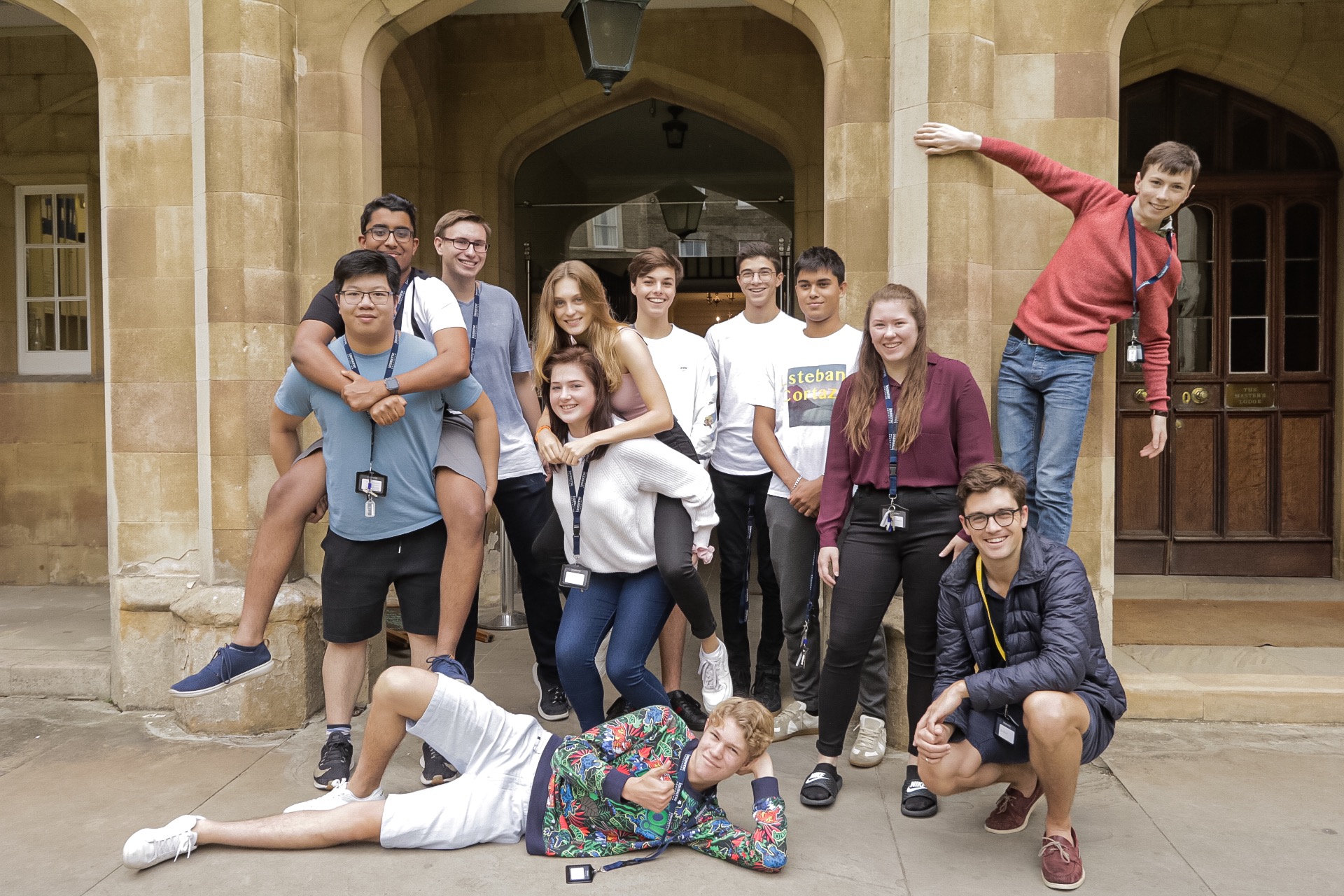
Engineering Summer School
The Immerse Education Engineering summer programme offers the perfect opportunity to explore your subject in depth ahead of committing to more advanced study.
Surrounded by the scientific heritage of centuries of Oxbridge graduates, you will explore the range of topics available to an engineering student and appreciate the interdisciplinary nature of this field. Topics range from sustainable engineering, to computer engineering and beyond enabling you to get a feel for what it would be like to study Engineering at an advanced level and engineering career prospects.
Frequently Asked Questions
Engineering is the process of designing and creating things. It can be something as simple as a tool to help make a job easier. Or something as complex as a spacecraft that will take people to another planet. Engineers use their knowledge of science and math to come up with new ideas and solve problems.
Why is it important to study engineering?
Because engineering is one of the most in-demand professions today. Do you know they have the highest average starting salary of $100,640? In 2016, they had a median annual wage twice more than all workers.
And did you know that Engineers are a cornerstone of the UK economy? They account for 21.4% of the UK’s turnover in 2018.
Engineers improve human lives with their inventions. And they improve what’s already working to enhance the technology’s performance.
Their ability to solve problems using mathematics and science even extends to business. Do you know that an average of 33% of CEOs majored in Engineering? Business administration comes second, with 11%.
The US Bureau of Labor Statistics estimates 140,000 new jobs for engineers over 2016-2026. Guess what the largest engineering occupation is? If you said civil engineers, you guessed right! Followed by mechanical and industrial engineers.
How about in the UK? There is an urgent demand for engineers. With a shortfall of 55,000 qualified engineers annually. The Graduate Market Trends 2021/22 states that it’s common for engineers to find work relevant to their field. 60% of mechanical engineering graduates and 80.6% of civil engineering graduates practice as engineering professionals. Other potential careers include production managers, chartered surveyors, business analysts, and Information Technology work professionals.
Immerse Education offers both online and residential courses for Engineering. The residential courses are available in the UK in Cambridge, Oxford, and London. And Sydney outside of the UK.
You won’t need prior skills, experience, or learning to take Engineering summer school. But having an active curiosity in engineering is valuable. Your expert Engineering tutors will send you work before your summer course starts – ensuring you hit the ground running.
For 13-15 yr. olds:
Industrial Revolutions
In this module, you’ll trace the history of Engineering across four industrial revolutions. What were the breakthroughs? How did they impact today’s engineers? Based on this context, what do you think the future of engineering will look like?
Telecommunication Engineering
How do telephones and radios work? In this lesson, you’ll dive deep into Wi-Fi and Bluetooth mechanisms. And even AM and FM radio systems! Here’s the exciting part, you’ll create your own radio receiver!
Control and Automation Engineering
Control and Automation engineering implements information to make industrial systems work according to instructions. First, you’ll explore signals and systems in this module. Then you’ll learn about proportional-integral-derivative control systems. Next, you’ll tackle the ethics of AI with a “moral machine” simulation. And engage in a debate to develop your research and oratory skills.
Engineering a Solution
You will be presented with a known problem and asked to work in pairs to create a solution based on the engineering principles that have been encountered. You will then present your idea and demonstrate a working prototype to your peers before facing questions.
For 16-18 yr. olds in Cambridge, Oxford, and Sydney
Electrical Engineering
To understand electrical components such as digital circuits and sensors, you need to apply the principles of electromagnetism. One of the best ways to learn it? By exploring and addressing the limitations of digital circuits at the base of modern laptops and smartphones. Then you’ll apply what you’ve learned by creating your own radio receiver!
Mechanical Engineering
In this module, you’ll review the fundamental principles of kinematics and the Newtonian laws of motion. Then you’ll learn about the rigid body dynamics for 2D and 3D objects. Here’s a thrilling lesson: you’ll explore the engineering design of earthquake-resistant buildings! Of course, you’ll have the chance to pitch your own ideas based on an in-class scenario.
Material Engineering
You’ll dive into one of the fascinating fields of material engineering: nanoscience and nanotechnology research. Take a look at existing materials. And consider the latest substances at the forefront of current studies. Then explore how engineers develop and test new materials.
Engineering a Solution
Your tutors will present you with a known problem to apply what you’ve learned. You’ll work in pairs to create a solution using the engineering principles you’ve learned. Next? Present the idea and working prototype you’ve developed to the class. Then answer the questions thrown your way.
For 16-18 yr. olds in London
Theory & Research
The Theory & Research module introduces you to key concepts of engineering. Here you will look at real-world data and recent developments. You’ll also examine case studies in the different fields. Including civil, mechanical, sustainable and aerospace engineering. By the end of this session, you’ll know how to use data and research in product development. And you’ll have practised presenting your insights in a professional setting.
Practical Experience
Do you want to know what it feels like to be a professional engineer? You will! Because you’ll visit industry heavyweights like Jaguar Land Rover or Transport for London. Plus, you’ll experience workshop sessions with Dyson Institute. A robotics master class with the School of Coding. In Practical Experience, you’ll see the engineering innovators who change the face of the industry.
Real-World Project
For the Real-World Project, your job will be to offer an innovative solution to improve transport around London. You’ll start by examining the problem. Here you’ll interview those it impacts the most, such as Transport for London and London Assembly. Then you’ll investigate potential solutions.
What technology, budget, and timeframe is available to you? From the answers, you’ll work on product development. In the end, you’ll have the opportunity to pitch your product or service to industry professionals.
Professional Development
What are the existing and emerging careers in engineering? You’ll participate in guest lectures and expert panel discussions in the Professional Development module. The speakers will come from world-famous institutions like MIT, Stanford University and the University of Cambridge. And also from leading companies like Airbus, Siemens and Rolls-Royce!
Motivated students ages 13-18 are best suited for Engineering courses. It’s beneficial for students looking to take Engineering courses at the University. They will have a tremendous advantage over their competition.
Also, are you looking to learn from expert tutors from the University of Cambridge, Oxford, and London? You’ll love this course!


